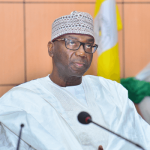In recent years, Nigeria’s maritime industry has borne the brunt of high war risk insurance premiums—a situation many stakeholders now view as outdated and economically damaging. As one of the region’s largest trading nations, Nigeria relies heavily on maritime logistics to move oil, gas, and consumer goods. Yet, each voyage into its ports is slapped with hefty surcharges, stemming from past maritime insecurity that many argue is no longer relevant.
War risk insurance was once a lifeline for shippers navigating piracy-infested waters, especially in the Gulf of Guinea. But recent statistics show a stark improvement in maritime security. Since 2021, piracy incidents have plummeted, with not a single case recorded in the last 36 months.
Despite this, Nigerian-bound cargoes still attract exorbitant war risk premiums. Premiums have spiked to between $50,000 and $100,000 per voyage, costing Nigerian businesses billions of naira annually. NIMASA reports that over $1.5 billion has been paid to foreign insurers like Lloyd’s of London in just three years.
These costs cascade through the supply chain, increasing the price of imports, affecting businesses, and raising consumer prices. A 15% spike in overall shipping costs was recorded between 2020 and 2023, largely driven by inflated insurance fees.
The government and private sector are pushing back. NIMASA, alongside the Nigerian Navy, has fortified maritime surveillance and patrols. The Deep Blue Project, launched in 2013, has played a crucial role in eliminating piracy hotspots.
Yet global insurers remain unmoved. According to NIMASA’s public affairs chief, Osagie Edward, Nigeria has made extensive reforms and security improvements that should nullify the need for war risk surcharges. “The rationale behind these premiums no longer exists,” he said.
Trade experts like Captain Emmanuel Iheanacho and Captain Tajudeen Alao describe the continued charges as exploitative. They believe a reclassification of Nigerian waters is overdue and that foreign insurers are capitalizing on outdated narratives to maintain profit margins.
The Nigerian government is now appealing to global institutions to reassess the classification. Until then, businesses must navigate an uneven playing field that continues to place an unjust burden on the nation’s economy.










